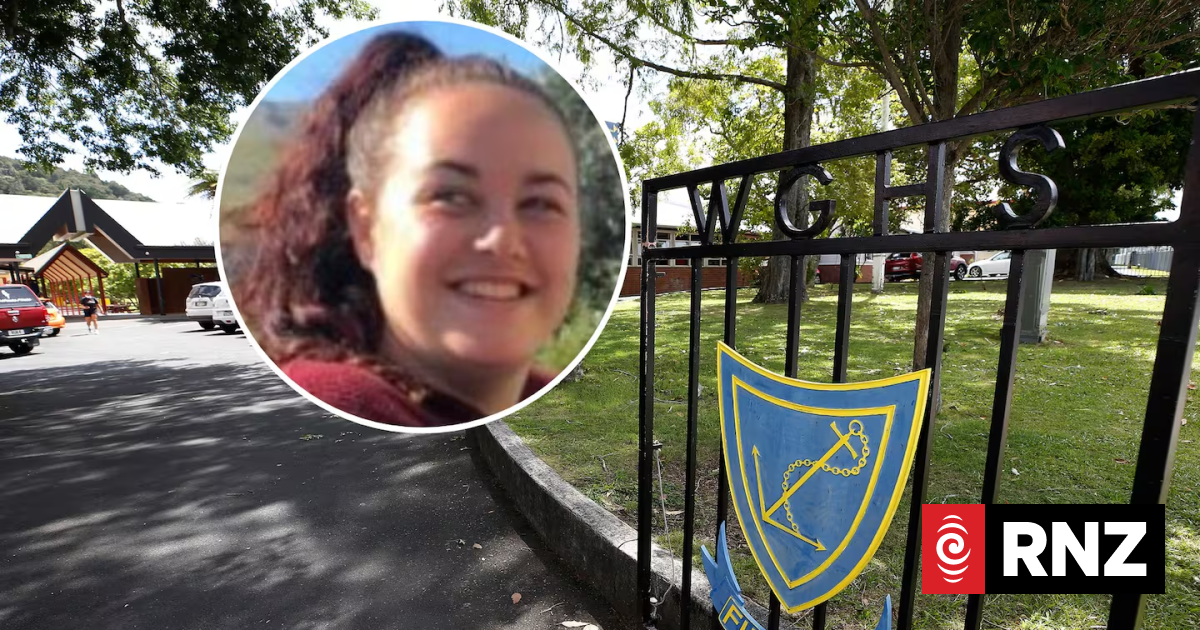NZ students are struggling in core subjects such as reading and maths. Photo / 123rf
New Zealand’s once world-leading school system is in trouble. Literacy and numeracy rates continue to decline across the board, leading many to question where we have gone wrong. In Making the Grade education reporter Amy
Wiggins explores the issues and seeks solutions to a problem that threatens future generations.
Walking home one day, an 8-year-old Jacob Neary burst into tears.
Surprised by the sudden outburst, his mum asked what was wrong.
“I did a maths test today and I couldn’t read it,” came the answer.
As soon as Jacob started primary school learning was difficult.
“From a very young age, it’s always been really difficult for me to remember information and retain it,” Jacob, now 17, told the Herald.
“Even just the basic words. For the life of me I couldn’t remember.
“It was pretty upsetting, especially when other kids are picking up on stuff and learning. It’s not like you’re not trying.
Advertisement
“You get called stupid.”
Mum Sally Neary said no matter how hard Jacob worked, he couldn’t get his head around the basics of reading the same way his classmates were.
“We were a family who did his school reading books every night and we practised his spelling words and he’d go along for his little test and spelling was a disaster, reading was just so difficult for him to learn.
“His teachers were trying really hard and we were trying really hard at home and we just couldn’t understand what was going on.
/cloudfront-ap-southeast-2.images.arcpublishing.com/nzme/TBNMPAP4KNAPZFSNCDO6OQUEXQ.JPG)
“It was heartbreaking because he was just trying so hard.”
Two weeks into the start of Year 3 Neary decided it wasn’t just because he was a boy or because children learned at different speeds.
“I thought things are just not right.”
That’s when she did some research and found SPELD New Zealand – an organisation that works with children and adults who have specific learning difficulties like dyslexia and dyscalculia.
Advertisement
An assessment found that Jacob’s struggle at school was because he had dyslexia and struggled to learn the same way as many of his peers.
Jacob is not alone. Even without learning difficulties, many New Zealand school students are failing to grasp fundamental academic skills that provide the basis for higher learning and jobs.
A 2020 Unicef report found over a third of our 15-year-olds did not have basic proficiency in literacy and maths. It’s one of a series of international and national reports which have shown New Zealand students are falling behind in the core subjects of reading, writing, maths and science.
Universities became so concerned at the inability of undergraduate students to write an essay or understand basic equations that they called for independent numeracy and literacy standards as part of NCEA. Pilot tests have since shown only one in three students passed the writing component, while around two-thirds passed reading and numeracy tests.
Business leaders have been voicing their concerns for some time. In the Herald’s New NZ series last November, independent economist Cameron Bagrie picked education as the number one social and economic problem which we urgently needed to address.
“If you want to pick an economic barometer of where New Zealand’s going to be in 30 years, I don’t think there’s any better one than education system outcomes today,” he said.
“If you’ve been looking at achievement or attendance, you’re going to be really worried about where New Zealand’s going to be in 30 years.
“I think we’ve just gone away from the basics.”
Bagrie said he was concerned about the lack of urgency to address what he called the ”fundamental problems”.
Bagrie’s views are echoed by Dr Nina Hood, founder of the Education Hub website.
/cloudfront-ap-southeast-2.images.arcpublishing.com/nzme/KNHW3ZURY5GXHBZ7R5U2M6JAGI.jpg)
“I am deeply concerned by the declining academic achievement that we’re seeing across all curriculum areas and the deep inequities within our education system.
“Increasingly, I’m questioning whether our education system, in its current form, is able to support students to build the range of knowledge, skills, and competencies that they need to thrive in the future.
“I’m convinced that if we were building an education system from the ground up today, it would not look like our current school system.”
The Ministry of Education itself admitted in late 2020 that the “current system for literacy learning is clearly not working for a reasonably large group of students”.
The ministry document, How our education system is performing for Literacy, said there was a “systematic failure to accelerate progress for those who have started behind”.
Maths and science have also been badly neglected, especially at primary level where many teachers lack the knowledge to teach the subjects well.
How badly are we doing?
Student achievement in core subjects has declined over the past two decades at both national and international level.
The most recent international tests for reading, the 2016 Progress in International Reading Literacy Study (PIRLS) and the 2018 Programme for International Student Assessment (PISA), both showed a drop in literacy levels. Almost one in five students in the PISA test failed to demonstrate the skills needed to be functionally literate.
Closer to home, New Zealand’s National Monitoring Study of Student Achievement (NMSSA) – which looks at Kiwi kids’ reading and writing in Year 4 and 8 – is also finding serious issues.
The latest data, from 2019, found 37 per cent of Year 4s were behind curriculum expectations in both reading and writing, while in Year 8 – the last year of primary – 44 per cent were behind in reading and 65 per cent were behind in writing.
Last year, when the Ministry of Education ran a small pilot of its new NCEA Level 1 literacy and numeracy standards, only one in three students passed the writing component, while around two-thirds passed reading and numeracy tests. Without those standards, from 2024 students won’t be able to get NCEA.
Even more concerningly, just 2 per cent of students in decile 1 schools passed the writing assessment, compared with 62 per cent in decile 10 schools. There was also a substantial sex difference, with almost half of girls attaining the writing standard compared with about a quarter of boys.
For maths, the local NMSSA study found 19 per cent of Year 4 students and 55 per cent of Year 8 students were behind expectations in 2018.
The international 2018/19 Trends in International Mathematics and Science Study (TIMSS) results also show nearly half of Year 5 and Year 9 learners are not achieving at or above the level of maths they needed to become numerate.
Similarly, the 2018 PISA results showed a significant drop in maths ability, with more than one-fifth of New Zealand 15-year-olds not on track to become functionally numerate.
Kiwi kids’ performance in science also hits dire levels by the time they get to high school. The 2017 NMSSA for science found by Year 8, 80 per cent were behind the expected level.
Internationally, the 2018/19 TIMSS showed more than a third of Year 5 and Year 9 students were not achieving at the level they should be. The 2018 PISA results also showed a significant drop in science ability with 18 per cent of 15-year-olds not able to demonstrate the competencies they would need in real life.
Early achievement leads to later success
The studies show the problem starts in the early years of schooling and only gets worse as students move into high school.
Those first years in primary school should be teaching children to read, write and understand basic maths skills, which they then build on for the rest of their lives.
The Ministry of Education’s Maths and Literacy Strategy says a child’s level of literacy and numeracy influences their life outcomes into adulthood.
“Adults with baseline literacy and communication skills are more likely to gain higher qualifications, be employed, have higher incomes, and report good health,” the report states.
“Early achievement in maths, even more so than reading, is a strong predictor of later academic achievement, mobility, economic success, and civic participation.”
A Ministry of Education report found that, nine years after leaving school, a person with NCEA Level 2 earns twice as much as someone who left school at the same time with no qualifications.
A person who completed year 13 and gained University Entrance earns 25 per cent more than someone with only NCEA Level 2.
Stats NZ data also shows unemployment levels decrease as education level increases, from 6.7 per cent unemployment for those with no qualification to 1.6 per cent or lower for a bachelor’s degree or higher.
The Department of Corrections estimates that 66 per cent of inmates have no formal qualifications, compared to 23 per cent of the wider population.
Where are we going wrong?
A wide range of factors can affect children’s ability to learn. Some students from poorer backgrounds struggle because of problems outside the classroom, including low attendance, truancy and a lack of books at home. The now-abandoned decile rating system showed the richest (decile 10) schools generally had the highest academic achievement, while the poorest (decile 1) were at the bottom.
However, the decline in New Zealand’s academic performance in key subjects over the last 20 years or so has occurred across all deciles, suggesting the problem also lies within the education system.
A report by Education Hub’s Dr Nina Hood, Now I Don’t Know My ABC, identifies systemic racism, high levels of absenteeism and transcience and home environments as factors likely to be contributing to the decline in student achievement.
But top of her list, and arguably the most easily solved, are the curriculum and teaching methods.
When it comes to the curriculum, she said there had been no national literacy strategy for the past 20 years meaning there was no coordinated plan for how all parts of the education system worked together to improve literacy.
The nature of the New Zealand Curriculum and NCEA also lead to differences in the breadth and depth of knowledge students acquired, she said.
/cloudfront-ap-southeast-2.images.arcpublishing.com/nzme/QFAE5GAVF5DRJOT2AUUXLMGZB4.jpg)
The New Zealand Initiative’s latest report, A Manifesto for Improving New Zealand’s School System – released to coincide with the Herald’s Making the Grade series – also points the finger primarily at our school curriculum and teaching methods.
Author Michael Johnston believes the current curriculum, in place since 2007, has played a big role in the drop in student achievement.
“It is knowledge poor and does not provide teachers with sufficient guidance. Instead, they are charged with developing a local curricula around the very loose framework provided by the New Zealand Curriculum, a task that most are not trained to carry out.”
It was especially difficult for primary teachers who were expected to cover the full range of subjects with very little specialist support, he said.
“The lack of prescribed knowledge in the New Zealand Curriculum leaves the door open for ad hoc approaches to subjects and muddled sequencing of learning, with students developing a fractured, incomplete understanding as a result.
“It also means that the learning experiences of students across the country are inevitably uneven. Content and depth both vary widely, exacerbating educational inequality.”
/cloudfront-ap-southeast-2.images.arcpublishing.com/nzme/TIIKUCPAV3ESFEIDF3C4GHP2MQ.jpg)
Auckland University’s director of the Knowledge and Education Research Unit Professor Elizabeth Rata agrees.
“There is no standardised national curriculum which identifies the knowledge to be taught across the country. This means that it is not possible to know what is taught in any given school and where the knowledge is taken from.”
Dr Lisa Darragh of the Auckland University School of Curriculum and Pedagogy saw the lack of specificity as both a strength and weakness.
“The lack of specificity means teachers can make it very relevant to their community but that same lack of specificity leaves some teachers in some schools feeling lost about where to go.”
Teaching methods are another area of concern for many as the battle between the science of learning and a mixture of more sociological teaching techniques rages on.
The battle is particularly fierce within literacy where the argument between a systematic, phonics-based teaching method and a whole words approach has been dubbed “The Reading War”.
/cloudfront-ap-southeast-2.images.arcpublishing.com/nzme/FVZR7WXV5RHOAGP6TXVQGTY6NE.jpg)
Education Minister Jan Tinetti last year conceded the difference of opinion meant students were being taught differently between schools, and sometimes between different classrooms in the same school.
Tinetti and the ministry are working on changes to the school curriculum and teaching methods for reading, writing and maths. Critics of the current system believe both will be crucial for our education system but at this stage the outcomes are uncertain.
Making the Grade will examine both in more detail, starting with teaching methods next Wednesday.
‘A massive difference’
Finding out he was dyslexic helped Jacob realise he wasn’t stupid, rather he just learned best in a different way.
“It just gave me some insight into why I’m like this. You always ask ‘why am I not like every other kid’,” he said.
From there, Jacob began getting one-on-one tuition with a SPELD tutor once a week for three years.
There he was taught using a more systematic, phonics-based approach – commonly referred to as structured literacy.
Neary said the tutoring made a “massive difference” to Jacob who was two years behind in his learning by Year 4.
“The SPELD tuition was a place he could go and feel like he wasn’t dumb. It helped his confidence and self-esteem.”
Jacob, now 17, is in his final year of high school and has passed NCEA Level 2.
While school hasn’t been easy for him, the confidence that came from knowing his struggles came from the way his brain was wired helped him persevere and succeed.
While Neary couldn’t be more proud of her son’s achievements, she believes all children should be taught using structured literacy when they start school.
/cloudfront-ap-southeast-2.images.arcpublishing.com/nzme/FKRY2KBDUNGEHPT5F7EAHS25RU.JPG)
“You’re not just going to pick up the ones that are going to learn quickly – they can go at a faster speed and that’s great. You can extend them more within the structured literacy framework,” she said.
“But it’s also going to pick up the ones who are going to find it difficult whether they be dyslexic or not.
“It also gives the teachers a framework to teach all the learners in their classroom in a better way.”
Neary said her son had great primary school teachers who worked hard to try to help Jacob, but they didn’t know what to do because they had never been taught about dyslexia or how to teach students with learning difficulties.
It was not just reading and writing Jacob struggled with but maths as well.
She said in primary school they moved through the different maths topics so quickly that even when Jacob grasped the concept there was no time to cement it in his long-term memory.
That meant when it was revisited a few months later, he struggled all over again.
Neary believed constant revision of what had already been taught was needed to cement the ideas in long-term memory.
“There are so many falling through the cracks,” she said. “The cost is so high for New Zealand.”




